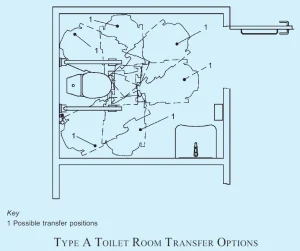To save money and headaches, no matter if you are a DIY newb or vet, learning these essential plumbing tips can help with many of those pesky everyday plumbing problems from leaky faucets to a clogged drain.
Minor problems need not wait for a professional and can save water (and money) – these DIY plumbing tips will help you to get there fast. 1. Use natural products to unblock drains 2. Add aerators to taps 3. Clear drains before they get clogged 4. Fix running toilets 5. Remove unnecessary pipes, use rainwater instead 6. Do not use chemical drain cleaners 7. Use heat to unfreeze pipes 8. Water your plants with greywater 9. Insulate pipes if they feel cold 10. Use water storage tanks.
Turn Off the Water
However, one thing’s for sure: lots of simple preventative plumbing repair procedures can head off a major plumbing headache down the road. For the most part, serious issues like burst pipes and gushing major leaks require calling a licensed plumber immediately. However, the following steps will sidestep some predictable plumbing problems, and could save a homeowner some money in the short run. Knowing where and how to turn off the main water valve to the house can prevent large plumbing emergencies. Know where it is and, if your home has any isolation valves (for the sink or toilet), learn where they are. This valve is usually located near your water meter in a box at ground level and you will likely need a special key to open it. When you shut off your water supply at the main, turn on a faucet on the lowest floor (such as your cellar) to get rid of the unwanted standing water, and make sure that the water in your pipes can escape when you turn back on. This also helps remove air pockets when you turn water back on!
Disconnect the Faucet
To get my leaky faucets identified and fixed as quickly as possible, I turn off their main water sources by twisting a valve anticlockwise (for wheel handles, a few turns; for levers, very slowly) until I hear or feel that the water ceases to run through them. When it comes to keeping water out and away, this begins with understanding what goes into your drains. Avoid dumping grease, oil, coffee grinds and other solids down your kitchen sink, and be sure that drain screens in your bathrooms capture hair and soaps scum every time you use them. Keep a close watch on your building’s water pressure, and be alert if any sudden drops occur, which would be a red flag for bigger plumbing problems. Therefore, if the residents of Old Bridge, Spotswood, Sayreville and East Windsor have some knowledge about some basic plumbing techniques, they can feel confident in dealing with normal problems on their own. If the problems are more serious, like uncloging a drain or replacing a leaking pipe, they need to hire a professional.
Remove the Cartridge
If you have to deal with many clogged drains, a plunger is a definite must for your home. But you can feel smug as your neighbours frantically pull out their phones to call an expensive plumber, because there are, in fact, many other simple plumbing fixes that you can easily do yourself. An infrequently used sink drain, for example, can be quickly cleared by mixing a quarter cup of Epsom salt with ½ cup of baking soda and pushing it down. The carboxyl group contained in epsom salts plays a vital role here: the hydroxyl and carbonyl groups bind water to form epsom acid, while the oxygen atom links together nonspecific metal ions. In its solid state, this ‘fidget spinner acid’ resembles a geometrical ball of beauty, but once its sediment spreads into your water-filled drain, the reaction akin to ‘water attraction’ creates a cleansing fizzy acid, which – like pouring cola into a bottle – quickly unclogs your blocked sink by pushing gunk down your pipes. Another easy fix sees old, stale washers replaced in faucets prone to dripping when turned on and off. Upkeep is important here; food scraps caught in your sink drain, hairbuilding up in your bathtub drain, and pipes twisting their connections before adding the final twist that strips its threads and leaks insidiously! · Plumbing legend: This carboxyl group in epsom salts is the real star of the show: its hydroxyl and the carbonyl groups will attract water and form the misnomer of epsom acid, and physically, oxygen atoms link togetherunspecific metal ions in an attractive little bond circle · Plumbing graphic: Triple-bonded oxygen atoms lock onto unspecific metal ions (OH = hydroxyl moiety) · Plumbing legend: You can see how, in its dry powder form, this looks like an attractive geometric ball 102_prot901_ldr3036_perspjpgNotes:30760_37650 Epsom salts is prepared from crystals formed during a outgassing process in a Pontiac Silo.31992_37661 Three views of unspecific metal ions linking together via the bridging triple-bonded oxygen atoms from separate methylene units (also known as the carbonyl moiety) from the carboxyl group in a photosynthesising Epsom salt plant30777_37660 Rendering of the above ball with the tail portion of epsom salts dangling from a previous oxygen atom (the C=O unit is effectively chilling third base in the molecules crystalline structure).31665_37662 Three views of the very metal ions in a chain that’s being congealed and intertwined by each overlooked moiety from the above ball.
Clean the Valve Stem
Valve stems need to be free of carbon so that they can make a good seal. If the stems have any pitting or damage, a lot of fine wet-or-dry sandpaper can be used to remove them. Don’t over-sand on the valve face, or you also can damage it. Special pliers, designed specially to clean positive-style seals, can also be bought for this purpose. It is very important that you get your plumbing inspected regularly. This way you can identify any possible leaky faucets, broken pipes and other related problems early, before they send your water bill soaring and results in more serious damage – and potentially harmful if not addressed quickly. Some plumbing problems can be taken in hand with DIY fixes, but others should always be entrusted to professional plumbers. For the latter, professional intervention will be needed to resolve them, plus a plumber will have the appropriate tools to address them, and will also help you to keep your plumbing system in good shape so that it lives a long and productive life. Which repairs are best left up to the professionals, rather than your DIY self? Which kind of repair needs to be called in sooner rather than later? The sooner you can answer these questions, the sooner you’ll be able to save money and stress as the need for these repairs arises.







More Stories
Specialized Plumbing for Multi-Generational Households: A Guide to Harmony and Flow
Essential Winterization and Freeze Protection for Plumbing in RVs, Tiny Homes, and Seasonal Cabins
Water Pressure Optimization and Flow Rate Management: The Unseen Symphony of Your Home